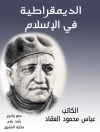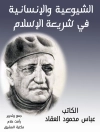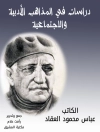The title of Charles Taliaferro’s book is derived from poems and stories in which a person in peril or on a quest must follow a cord or string in order to find the way to happiness, safety, or home. In one of the most famous of such tales, the ancient Greek hero Theseus follows the string given him by Ariadne to mark his way in and out of the Minotaur’s labyrinth. William Blake’s poem “Jerusalem” uses the metaphor of a golden string, which, if followed, will lead one to heaven itself. Taliaferro extends Blake’s metaphor to illustrate the ways we can link what we see, feel, and do with deep spiritual realities.
Taliaferro offers a foundational case for the recognition of the experience of the eternal God of Christianity, in which God is understood as the fount of all goodness and the subject and object of our best love, revealed through scripture, tradition, philosophical reflection, and encountered in everyday events. He addresses philosophical obstacles to the recognition of such experiences, especially objections from the “new atheists, ” and explores the values involved in thinking and experiencing God as eternal. These include the belief that the eternal goodness of God subordinates temporal goods, such as the pursuit of fame and earthly glory; that God is the essence of life; and that the eternal God hallows domestic goods, blessing the everyday goods of ordinary life.
An exploration of the moral and spiritual riches of the Christian tradition as an alternative to materialism and naturalism, The Golden Cord brings an originality and depth to the debate in accessible and engaging prose.
Tentang Penulis
Charles Taliaferro is professor of philosophy and chair of the department of philosophy at St. Olaf College.












